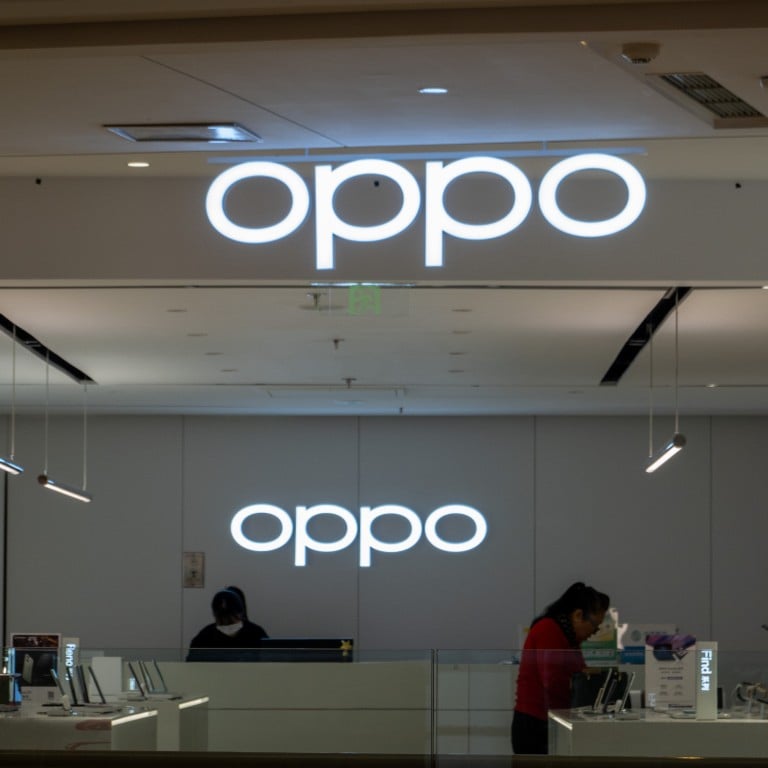
China smartphone brand Oppo doubles down on generative AI to gain an edge in cutthroat handset market
- Oppo is ‘actively investing in generative AI’, including the development of its own large language model named AndesGPT
- ChatGPT-like products are increasingly seen as potential game-changers in the highly-competitive smartphone market
Oppo is doubling down on its artificial intelligence (AI) research efforts as competition among smartphone makers to integrate ChatGPT-like products within handsets heats up.
The Chinese smartphone maker is “actively investing in generative AI”, including the development of its own large language model (LLM) named AndesGPT. Oppo’s research arm and engineering team for hardware and software are fully engaged in these efforts, said Jason Liao, president of Oppo Research Institute.
“We are very optimistic about the future integration of AI and LLM applications with smartphones,” Liao said in a media briefing on its start-up competition Inspiration Challenge in Singapore on Wednesday.
Smartphone giant Oppo’s closure of chip design unit Zeku triggers speculation
LLMs are algorithms that use deep learning techniques and huge data sets to understand, summarise, generate and predict new content. LLMs like GPT-3 have revolutionised conversational AI, enabling chatbots like OpenAI’s ChatGPT to understand and generate humanlike text.
However, Liao noted that Oppo will need to solve the computing power challenges needed to run LLMs locally on a mobile phone, instead of the need for an internet connection to access the cloud.
The institute, created by the smartphone maker to explore new technologies, is also working on multi-modal models and computer vision technologies that have the potential to be applied to Oppo’s products, Liao said. Computer vision is an AI technology that enables the identification and understanding of objects and people in images and videos.
Oppo, which was the world’s fourth-largest smartphone vendor in the third quarter according to Canalys data, unveiled AndesGPT in August for testing with the aim of upgrading its Siri-like voice assistant Xiaobu to improve interactions with users.
Microsoft-backed OpenAI took the tech world by storm late last year after launching its AI chatbot ChatGPT. The race to integrate ChatGPT-like applications has heated up among smartphone makers in China, where ChatGPT is not available. It is increasingly seen as a potential game-changer in the highly-competitive smartphone market.
Rival Vivo on Monday said it will launch its own AI model in its new operating system OriginOS 4, after Huawei Technologies integrated its AI model Pangu into the latest version of HarmonyOS in August. Xiaomi founder Lei Jun also showed its ChatGPT-like service with voice assistant Xiaoai in August.
Oppo is also soliciting innovative ideas from tech start-ups globally. On Wednesday, Oppo gave US$50,000 grants to each of five winning entrepreneur teams in its Inspiration Challenge. These included Chinese firm Aiverest, which is working on contactless health monitoring technology, and US firm Orbit for its 3D-tracking technology.
The companies will have the opportunity to collaborate with Oppo on their winning technologies. A blood glucose monitoring technology from Shenzhen Aibaowi Biotechnology, one of the winners of last year’s competition, has already been incorporated into Oppo’s smartwatch series.

